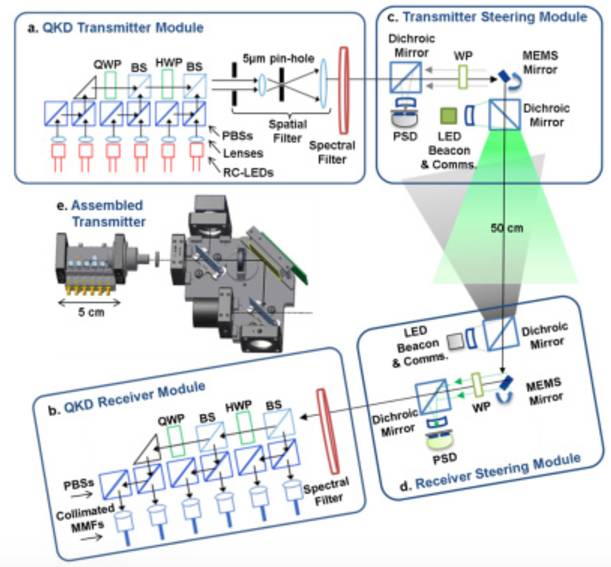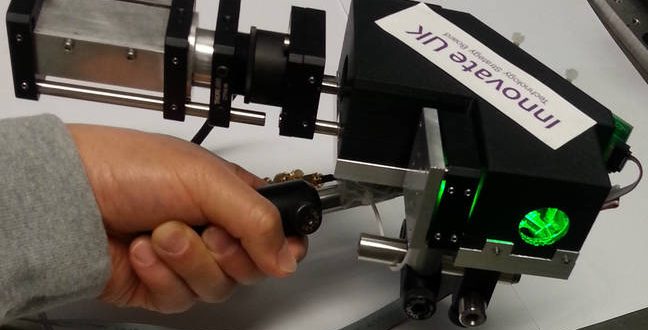No, it’s not a gun, I swear… I just want to pay for my milk. Let me go!
The rise of contactless cards and apps such as Apple Pay and Android Pay have made it easier to make payments. Although swiping a card or smartphone is quicker than the traditional chip and pin method, it’s not always as secure.
Researchers from the University of Oxford, Nokia and Bay Photonics hope to change this by developing a device that can send data more securely over near field communications (NFC) digital payments or Wi-Fi.
A paper published today in Optics Express shows that the handheld machine can send more than 30 kilobytes of data per second over 500 meters, and is made up of a transmitter module and a receiver module.
The ability to send information using quantum keys is based on the transmission and detection of qubits. The transmitter contains a series of movable mirrors to construct six pairs of optical cavities to filter LED light in different polarizations and positions.
Light is steered to the receiver module by a series of mirrors, and is split as it travels through another six pairs of optical cavities with the same polarizations found in the transmitter module. The light is then coupled into six multimode fibers connected to the Silicon Avalanche Photo-Detector. The detector counts the arriving photons and builds a secret key.

The quantum key is a unique combination that allows the data to be encrypted and sent over wireless communication channels, where the receiver will then decrypt the data to access it. Generating a long quantum key decreases the chances of it being cracked at random.
Iris Choi, co-author of the paper and physicist at the University of Oxford, said: “When a hacker attempts to tap into the channel it will change the content of the key. We’re not saying this technology can prevent eavesdropping or hacking, but if people do, we know they are there.”
Pesky eavesdroppers trying to obtain the quantum key will interfere with the system, alerting both parties that their transaction has been tampered with. Since data is carefully encoded as qubits – which can be in several different quantum states – an eavesdropper trying to intercept will disturb the qubits and change the quantum state of the system. The key will be changed and unusable.
First glances show the gizmo isn’t ready for making any digital payments yet. Measuring about 30 by 14 centimeters, it’s far too clunky for slim pocket-sized smartphones.
The researchers believe the prototype is a promising first step and are looking for ways the system can be miniaturized and embedded as a component for mobile phones. ®






